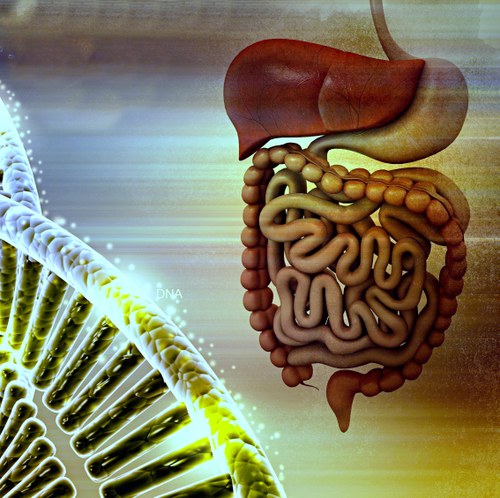
We have demonstrated that in MNGIE patients, the mucosal layer of the gastrointestinal tract fails to recover mitochondrial DNA copy numbers following transplantation. What occurs at the level of intestinal crypts in these patients, and how does this contribute to the persistence of gastrointestinal dysfunction?
Intestinal crypts, the functional units of the intestinal epithelium, are clonally derived from a single stem cell located at their base. These stem cells, residing in the niche, drive the continuous renewal of the intestinal epithelium, a dynamic process completed every 4-5 days. The balance between proliferation, differentiation, and migration along the crypt-villus axis is essential for maintaining the integrity of the intestinal barrier and its absorptive function.
In MNGIE patients, the accumulation of toxic nucleosides induces mitochondrial damage, which not only compromises the function of differentiated cells but may also disrupt the entire crypt, disturbing the cellular balance and reducing overall functionality. This disruption may affect epithelial turnover, contributing to the gastrointestinal dysfunction characteristic of the disease.
By employing laser microdissection and next-generation sequencing techniques, our study aims to examine the clonal propagation of mitochondrial mutations in both stem and differentiated cells. Analyzing isolated intestinal crypts will help us determine whether mitochondrial damage primarily originates in stem cells and propagates during differentiation, or if it predominantly affects mature cells.
The goal is twofold: first, to deepen our understanding of MNGIE at the intestinal level, clarifying how mitochondrial damage disrupts epithelial homeostasis; and second, to explore how clonal damage propagates, offering new insights into the maintenance and dysfunction of stem cells in pathological conditions. This knowledge could ultimately lead to targeted therapeutic strategies to address gastrointestinal alterations in MNGIE patients.